Brand Personalities: Designing Distinct Brand Characters
What makes a brand stand out? Its personality. Brand personalities define a company’s character and influence how it’s perceived and experienced by customers. They’re pivotal for distinguishing your brand in a saturated market, gaining customer loyalty, and evoking an emotional connection. As we dissect the anatomy of successful brand personalities, we will guide you on how to infuse authenticity, consistency, and relatability into your brand’s identity. Prepare to transform your brand into a story that your audience wants to be a part of.
Key Takeaways
- A brand’s personality encompasses a mix of traits like authenticity, consistency, and emotional appeal. These traits are vital for forging deep connections with consumers and standing out in the marketplace.
- The creation of a successful brand personality involves understanding and reflecting the desires, values, and lifestyles of the target audience, ensuring consistency across all marketing materials and interactions.
- Brand personalities need to evolve over time to stay relevant and resonate with changing consumer needs. This requires a balance between maintaining a consistent identity and embracing innovation.
The Essence of Brand Personality
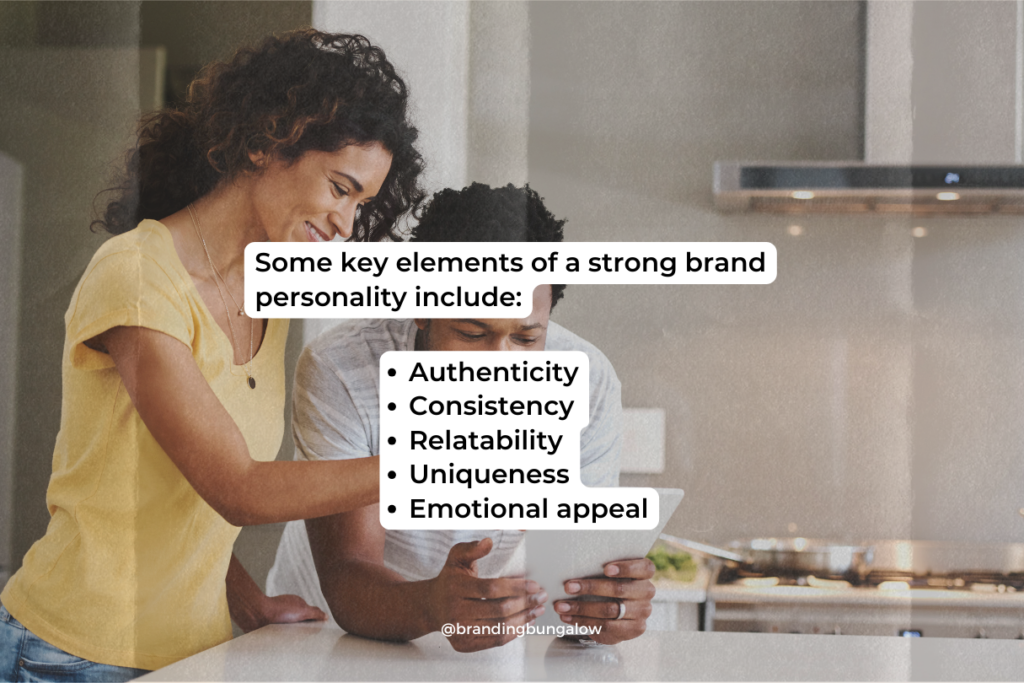
Imagine walking into a party and encountering a variety of people. Each person has their unique style, way of speaking, and values—they have a personality. Similarly, a brand’s personality is the unique blend of human traits and characteristics that define its essence. It’s the emotional and human touch that transforms a company into something more than a provider of goods or services. It becomes a relatable entity that we can form connections with, much like we do with people.
A well-crafted brand personality stands tall in the crowded marketplace. It’s the soul of the brand that not only differentiates it from its competitors but also forges deep emotional connections with consumers. These personality traits act as a magnet. They attract consumers by creating a bond that feels as real and personal as any relationship in their lives. Some key elements of a strong brand personality include:
- Authenticity
- Consistency
- Relatability
- Uniqueness
- Emotional appeal
By incorporating these traits into your brand, you can create a strong and lasting connection with your target audience.
In an era where digital interaction is king, infusing human characteristics into a brand becomes crucial to customer engagement and brand loyalty. It’s about building a relationship where customers see reflections of themselves in a brand, thereby fostering brand loyalty and leaving a lasting impression.
Unveiling the Layers of Brand Personality Traits
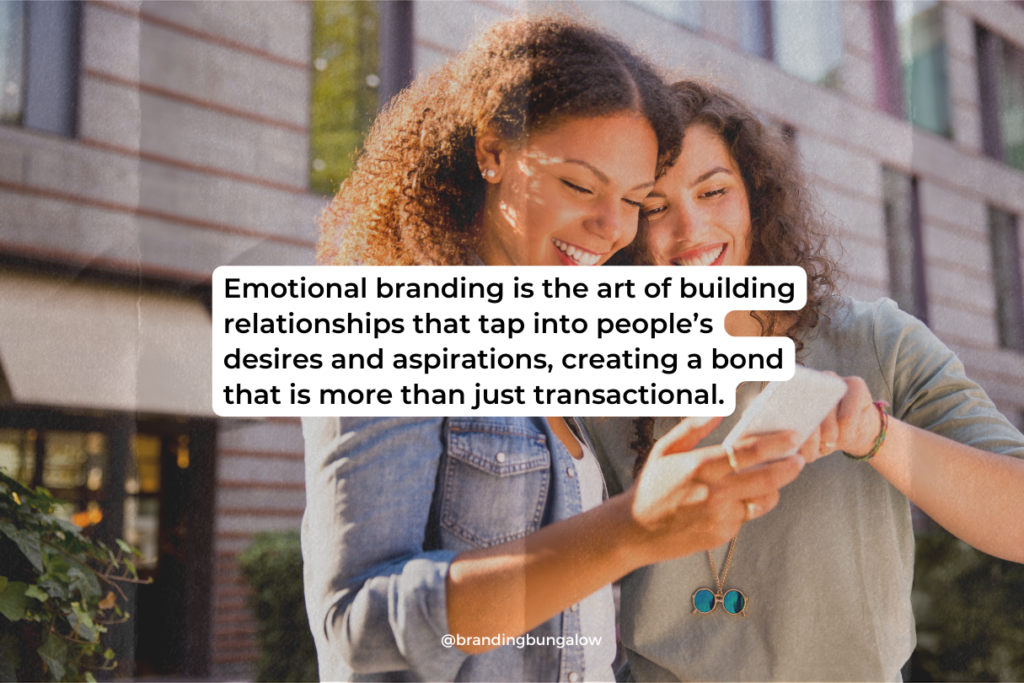
Diving deeper into the concept of brand personality, we find it’s not a one-dimensional feature but a complex tapestry woven from various emotional, intellectual, and behavioral threads. These layers collectively shape how a brand is perceived and how it resonates with its audience.
Let’s peel back these layers and explore the multifaceted nature of a brand’s personality, including the brand’s personality traits, from the role of emotion to the intellect and behavior that make up a brand’s unique character.
The Role of Emotion in Branding
At the heart of every successful brand is an emotional connection. Emotional branding is the art of building relationships that tap into people’s desires and aspirations. This creates a bond that is more than just transactional. When a brand successfully harnesses the power of emotion, it:
- Enhances its memorability
- Drives consumer loyalty
- Encourages customers to become brand advocates
- Increases willingness to pay a premium for that emotional attachment.
Think of the brands that have found a place in your heart. They’re the ones that tell a story you can relate to – a story that stirs feelings and resonates with your experiences. By personifying their brand, companies establish a unique connection. This helps make their brand more relatable, memorable, and favored in the decision-making process.
Intelligence and Competence: The Brainy Side of Brands
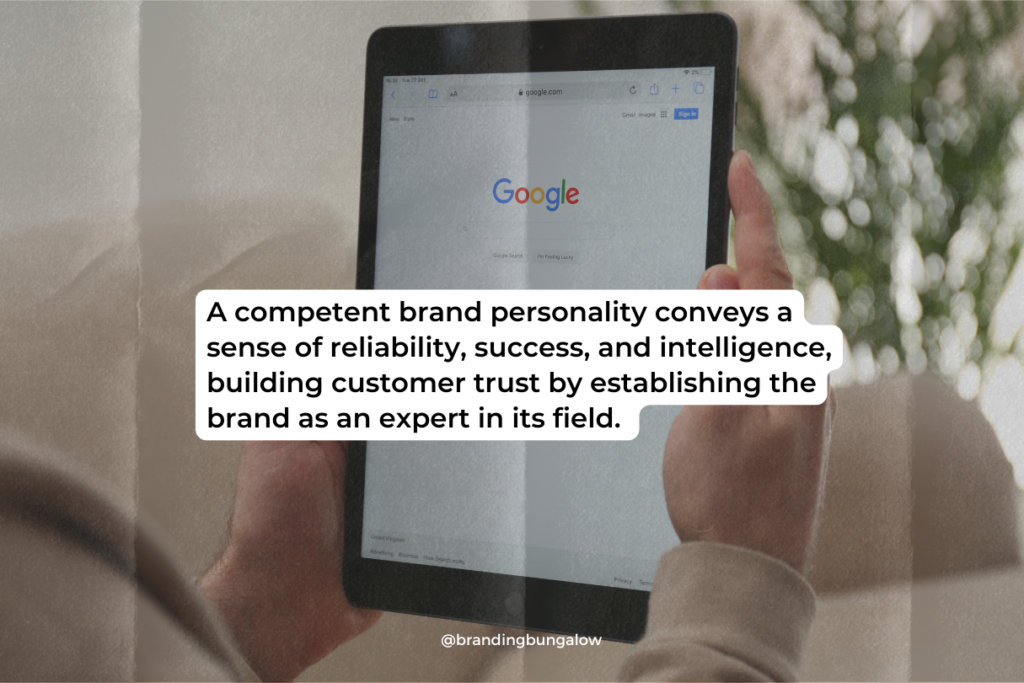
While emotion tugs at heartstrings, intelligence and competence appeal to the mind. A competent brand personality conveys a sense of reliability, success, and intelligence. It builds customer trust by establishing the brand as an expert in its field. Brands like Microsoft and Google are prime examples. They embody these traits through their innovative products and reliable services, which positions them as thought leaders and trusted advisors in their industries.
Brands that focus on intelligence-driven strategies leverage data and insights to inform decisions. They therefore foster a competent brand personality that assures consumers they’re making a smart choice. By conveying expertise and prowess, such brands create an aura of trust that consumers gravitate towards, knowing they’re in capable hands.
Behavior and Character: How a Brand Behaves and Acts
A brand’s behavior and character are the outward expressions of its inner values and ethical stance. This includes how it interacts with customers, responds to issues, and maintains its ethical standards. For instance, The Body Shop’s commitment to ethical and environmental causes is an integral part of its brand character, influencing consumer trust and loyalty. Similarly, Nike’s ‘Move to Zero’ campaign showcases its response to social issues, which is increasingly important to consumers who expect brands to take a stand on matters they care about.
How a brand behaves is not just about its marketing materials but also its partnerships, events, and community involvement. It’s about establishing a tangible presence that aligns with the brand’s identity and resonates with consumers on a deeper level.
Crafting Your Own Unique Brand Personality

Now that we’ve explored the layers to a brand’s personality, let’s discover how to craft your own unique brand character. It’s a creative journey that starts with identifying core values and mission, aligning with your audience, and ensuring consistency across all marketing materials.
By the end of this process, you’ll be able to create a brand personality that stands out and connects with your customers on a personal level.
Identifying Core Values and Mission
The cornerstone of any brand personality is its core values and mission. These are the ‘why’ behind your brand’s existence and serve as a strategic foundation for everything that follows. These guiding principles dictate the direction of your brand strategy and ensure alignment with your vision and mission. To pinpoint these values, consider the negative customer experiences you wish to invert into positive brand experiences and emotions your company aims to evoke.
Authenticity emerges when a brand’s attributes and purpose align harmoniously with its core values. This alignment leads to a trustworthy and resonant brand identity. It’s not enough to simply state your values. They must be actively demonstrated through consistent actions and decisions, thus reinforcing the authenticity of your brand’s personality.
Audience Alignment: Reflecting the Ideal Customer
Understanding your target audience is paramount when shaping your brand’s personality. It’s about getting to know their demographics, psychographics, preferences, challenges, and aspirations. This will help you create a personality that resonates with them. Detailed customer personas can help you tailor your brand traits to their needs and preferences. This ensures that the brand personality is not only relatable but also trustworthy.
Dialogue with customers is key to finding out what truly matters to them. Aligning your brand’s core values with customer priorities results in a deeper emotional connection and engagement, enhancing brand loyalty when personality traits align with audience values and lifestyles.
Consistency Across All Marketing Materials
Consistency in brand messaging ensures that audiences recognize the brand across different channels and deepens connections with customers. A brand style guide, detailing everything from tone of voice to color palette and imagery, is essential for guiding consistent messaging. Utilizing consistent fonts, colors, language, voice, and visuals across all mediums reinforces the brand’s personality traits and maintains a consistent brand presence, which is key to building trust and a cohesive customer experience.
All marketing materials and social media content must reflect the brand’s personality and values. This not only maintains a consistent brand image but also ensures that the brand remains true to its identity in the public eye.
Dissecting Brand Personality Frameworks
Frameworks are invaluable tools in organizing goals and developing strategic brand personalities. Two prominent brand personality framework models that have shaped the way we think about brand personalities are Jennifer Aaker’s brand personality dimensions and the archetypal approaches to brand personality. Let’s dissect these models to understand how they help businesses craft compelling and authentic brand characters.
Jennifer Aaker’s Brand Personality Dimensions
Jennifer Aaker’s brand personality model is a quintessential tool, offering five dimensions to consider:
- Sincerity
- Excitement
- Competence
- Sophistication
- Ruggedness
These dimensions help define a brand’s character and how it’s perceived by the public. The competence dimension, for example, captures brands that are seen as reliable, responsible, intelligent, and efficient, often based on product performance and responsible market behavior.
Aaker’s framework, published in the Journal of Marketing Research in 1997, provides a foundational structure for brand analysis and has been widely adopted for its clear categorization and ease of application.
Archetypal Approaches to Brand Personality
Archetypes serve as personifications of behaviors reflecting universal stories and character traits. They offer a roadmap for understanding customer desires and creating a brand narrative with emotional appeal. By aligning a brand’s personality with a chosen archetype, like the explorer or caregiver, brands achieve consistency in messaging that resonates with their values, goals, and target audience.
These archetypes help create a distinctive narrative and emotional appeal, contributing to the brand’s memorability and deeper customer engagement. For example, the Rebel archetype fits non-conforming brands, while the Sage archetype suits knowledge-oriented brands. Each offers a unique angle to connect with audiences.
The Influence of Visual Identity on Brand Personality
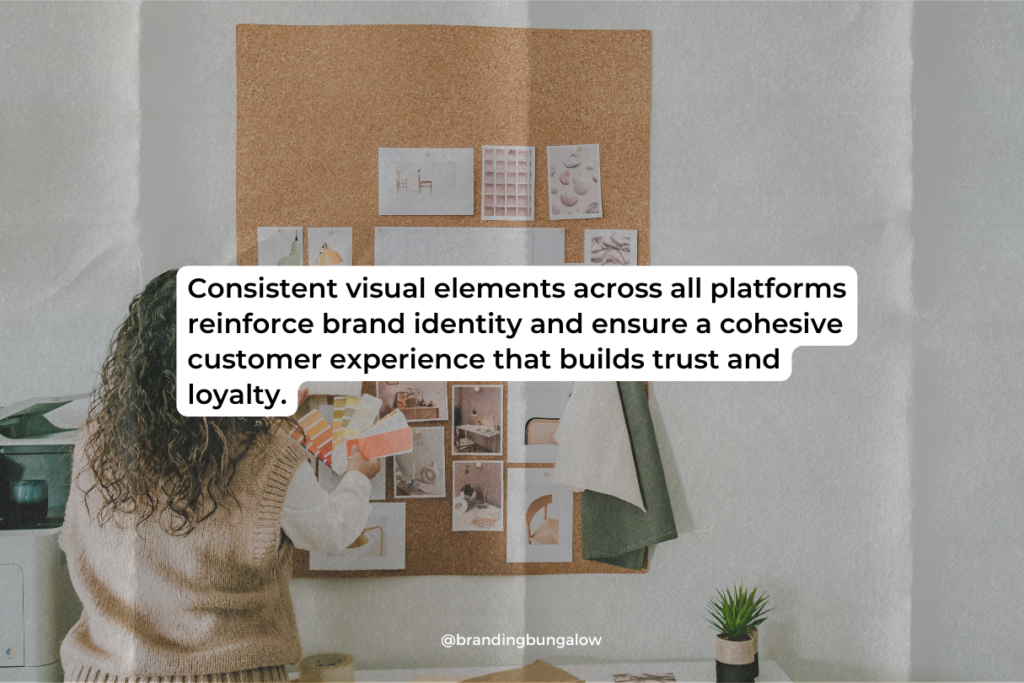
The visual identity of a brand—from its typography to its brand logo and color palette—is a potent tool in expressing personality and making an impactful, lasting impression. Consistent visual elements across all platforms reinforce brand identity and ensure a cohesive customer experience that builds trust and loyalty.
Visual elements like images, colors, and design motifs are central to storytelling and articulating a brand’s values. They reduce dependency on text and allow for a more authentic and relatable presentation of a brand’s personality. Logos and strategic color use not only facilitate instant recognition but also play a critical role in reinforcing the essence, values, and personality of a brand.
Vocalizing Your Brand: The Impact of Brand Voice
A brand’s tone of voice is an extension of its personality. It influences how messages are conveyed and how customers perceive the brand. The focus is on how something is said rather than what is said, helping to set the brand apart and offer insight into the entity behind it. A consistent brand voice complements other elements like logos and colors, crafting a cohesive brand identity.
While the brand voice remains constant to uphold the brand identity, the tone can vary depending on the context or communication medium. This adaptability ensures that the brand’s message is always expressed appropriately, whether it’s on social media or through customer service. Engaging the audience in a way that aligns with the brand’s personality, using a friendly and humorous tone for brands that embody those traits, strengthens consistency and resonance.
Case Studies: Brand Personality Examples in Action
Real-world examples provide the best illustration of brand personalities in action. From Coca-Cola’s blend of sincerity and excitement to Disney’s magical and family-friendly character, these brands have crafted personalities that deeply connect with consumers. Let’s take a closer look at some case studies that showcase sincere, rugged, and sophisticated brands, and how they’ve successfully employed brand personality to create a distinctive market presence.
Sincere Brands That Connect
Sincere brands have made a mark by establishing warm and nurturing relationships with consumers through honest and ethical practices. Starbucks, for example, fosters personal connections and community building through small gestures like writing customer names on cups. Likewise, Dove empowers and promotes body positivity, celebrating diverse beauty representations.
These brands, characterized by their own brand personality, exhibit traits like wholesomeness, cheerfulness, and honesty that resonate with consumers’ desires for authenticity and ethical engagement, leading to strong brand loyalty and lasting consumer relationships.
Rugged Brands That Inspire Adventure
Rugged brands tap into the spirit of adventure and toughness, appealing to those with a love for the outdoors and an active lifestyle. Brands like Patagonia and Jeep are perfect examples, resonating with the Hero and Explorer archetypes to inspire courage and quench the adventurous spirit. By communicating durability, craftsmanship, and an adventurous ethos, these brands have firmly established their rugged personalities within their respective industries.
REI and Timberland are other rugged brands that inspire adventure through their marketing messages and product offerings, emphasizing their commitment to durability and the outdoor lifestyle.
Sophistication Brands That Exude Elegance
Sophisticated brands, such as Chanel and Mercedes-Benz, are the epitome of luxury and exclusivity, targeting successful individuals and epitomizing status and wealth. They maintain a sophisticated brand personality by employing premium pricing, timeless design, and marketing that conveys elitism, status, and prestige. These brands resonate with their audience by reflecting cherished traits such as luxury and elegance, creating an emotional connection and providing a sense of status and prestige.
The sophisticated brand archetype is not just about the products; it’s about the entire experience. From the meticulous design of a Chanel handbag to the sleek lines of a Mercedes-Benz, sophisticated brands understand that their customers are not just buying a product—they’re buying into a lifestyle and a statement about who they are.
Navigating Brand Personality Evolution
In the dynamic world of branding, it’s not enough to create a strong brand personality; it must also evolve with customer needs and market dynamics. The challenge lies in maintaining a consistent brand identity while simultaneously embracing progress and innovation to avoid becoming stale or confusing the audience. Authenticity is key, and brands must truly embody their values to enhance their reputation and avoid the pitfalls of inauthenticity, which can cause significant harm to the brand.
Regularly measuring and adjusting your brand personality ensures that it remains effective and resonant with your audience. It’s a delicate balancing act that requires an understanding of when to iterate on your personality to better serve your audience and align with their evolving needs. The digital age adds another layer of complexity, demanding that brands adapt their identity and strategy to customer preferences and market changes in a way that balances reach and personalized engagement.
Building Brand Equity Through Personality
Brand personality is not merely an aesthetic choice; it’s a strategic asset that can significantly enhance brand equity. Authentic brand experiences lead to stronger brand awareness, associations, perceived quality, and loyalty—all of which are fundamental components of brand equity. The sensory, intellectual, and behavioral experiences that a brand provides contribute to the authenticity and, subsequently, the overall equity of the brand.
By differentiating through a unique set of personality traits and a distinctive tone of voice on social media, brands can stand out among competitors, influencing consumer choices and promoting customer conversion. Real-world examples like Dove’s sincerity, Nike’s excitement, and Starbucks’ blend of sophistication, sincerity, and excitement demonstrate how distinct brand personalities can be leveraged to build and maintain a powerful brand equity.
Maintaining Brand Personality Across Channels
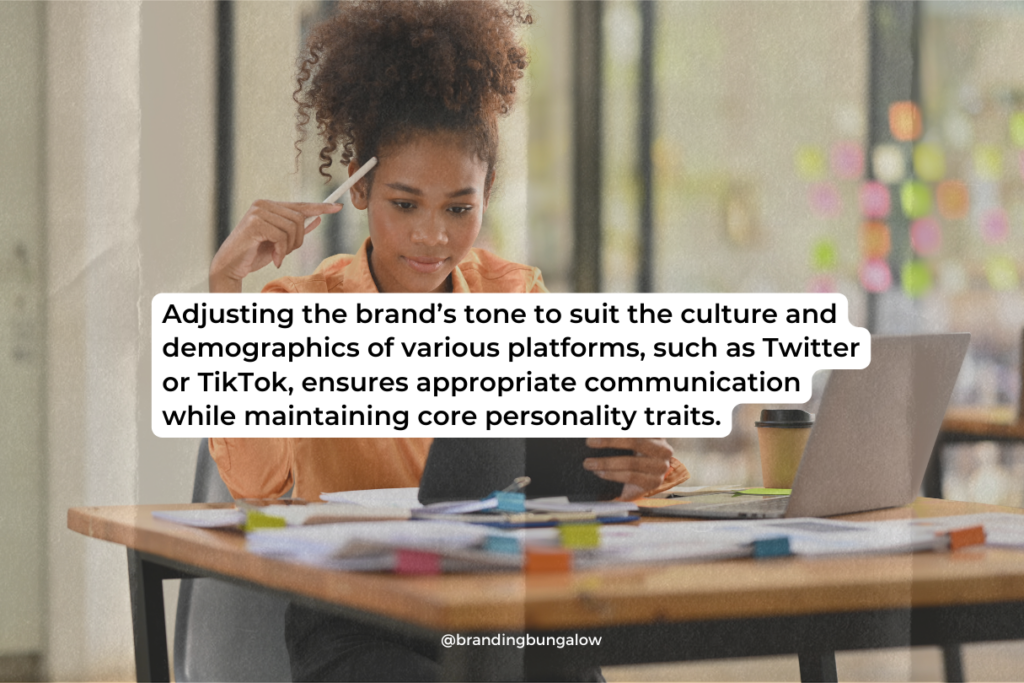
In today’s fragmented media landscape, maintaining a consistent brand personality across all channels is essential for building consumer trust and forging deeper brand relationships. Inconsistencies can lead to skepticism and doubt about the brand’s authenticity. This is why it’s crucial to reflect the chosen personality traits in every piece of communication. Adjusting the brand’s tone to suit the culture and demographics of various platforms, such as Twitter or TikTok, ensures appropriate communication while maintaining core personality traits.
Transparency in brand practices is a key factor in building stronger relationships with customers. By demonstrating openness and integrity, brands can enhance their connection with consumers and reinforce the brand message and identity. Remember, it’s about more than just the message. It’s about delivering an experience that is true to the brand’s character, no matter where or how customers interact with it.
Summary
Throughout this exploration, we’ve unveiled the intricate layers of brand personality, from its emotional resonance to its intellectual prowess and behavioral impact. We’ve learned that a unique brand personality is not just a marketing strategy but a way to establish deep, meaningful connections with consumers. Crafting a distinct brand personality involves identifying core values, aligning with the target audience, and maintaining consistency across all marketing channels.
Let this guide inspire you to craft a brand personality that is not only authentic and relatable but also adaptable to the ever-changing landscape of consumer preferences and market trends. Remember, your brand’s personality is the heartbeat of your business—it’s what makes your brand memorable, trustworthy, and, ultimately, successful.
Frequently Asked Questions
What does ‘brand personality’ mean?
Brand personality refers to the unique set of attributes and characteristics that define how a brand presents itself to its target audience, going beyond just its products or services to encompass the overall persona it portrays. Essentially, it’s how you’d describe a brand if it were a person. This includes the brand’s behavior, communication style, and the emotional response it aims to elicit from consumers.
What are the Big 5 brand personalities?
The Big 5 brand personalities are Brand Competence, Brand Sincerity, Brand Excitement, Brand Sophistication, and Brand Toughness. These dimensions can help you identify and shape your brand’s personality to resonate with your audience.
What is a brand personality example?
A great example of a brand with a distinct personality is Nike. Their brand exudes excitement, with bold, energetic marketing and products that motivate athletes. The “Just Do It” motto embodies a driven, athletic persona.
Recent Blog Entries
Discounts to Dubsado CRM, Helcim Payment Processing and...
Brand audits can save your business' sinking marketing ship.
What's happening to Coke and what you can learn from it.
Shop Products
Create a personalize brand board by taking elements from our 3 signature brand board templates.